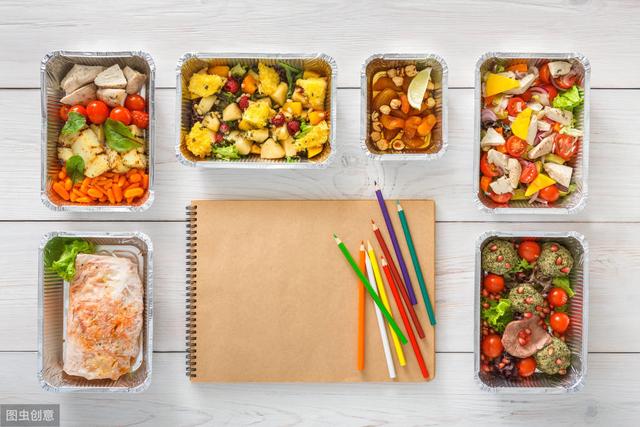Is it more harmful to have sustained relatively high blood glucose levels with fewer meals than to have absolute high blood glucose spikes with one full meal?
Eating fewer and more frequent meals blood glucose can also rise to a higher position, that means that the blood glucose before the meal is higher, eat a little bit to rise to the range of exceeding the limit. In this case of high blood sugar before meals, if you eat more and more full at once, the blood sugar will rise to a higher level, so both of these assumptions are not good enough, are diabetic patients do not want to face. And the latter scenario is even more likely to result in high fluctuations in blood sugar thatLarge fluctuations in blood glucose are more harmful than blood glucose that stays relatively high.。
So.The key thing is to keep your blood sugar from getting too high right before a meal.This is so that even if your blood sugar rises after a meal because of the meal, it is not over the limit or by much. With smaller, more frequent meals, blood sugar should be even less likely to go much over.

And then there's us.Pre-meal blood sugar is relatively high, and can not starve without eating, how to make after eating blood sugar does not rise higher?What you eat at this time is very important, the structure of this meal should have more vegetables, low glycemic index foods, such as coarse grains, protein foods, so that the mix together, this meal blood sugar rise will be slow, the rise will be smaller, but also can eat a lot. With exercise after the meal, blood sugar is even better.
Many people think it's good to eat smaller meals, but smaller meals can actually have a problem thatIt's that your digestive system is always in a constant state of being mobilized to secrete digestive juices, and the pancreas is constantly being mobilized to release insulin, which is a constant lack of rest and non-stop challenge for the body's digestive system.
Some studies have also found, as I said in my answer last February, that people who have the custom of Ramadan, who eat only one very full meal a day during Ramadan, even if that meal has more calories than the total calories of the whole day when they used to eat three meals, have better blood sugar instead, and there are other studies confirming similar results, soEating less and eating more is no longer advocated, we normally eat 2~3 meals a day is very good.
 if onlyBy taking care of the structure of the food, basically the blood sugar will remain relatively stable,Not so much as a fluctuation from one meal to the next,If your blood sugar is fluctuating too much, you're probably not eating the right things.You can recall whether you have eaten too much refined rice and flour or white porridge which is easy to raise blood sugar, or whether your diet is too single, lacking protein food, lacking roughage, lacking vegetables, all of these can be adjusted, and after adjusting them, you will find that your blood sugar improves immediately.
if onlyBy taking care of the structure of the food, basically the blood sugar will remain relatively stable,Not so much as a fluctuation from one meal to the next,If your blood sugar is fluctuating too much, you're probably not eating the right things.You can recall whether you have eaten too much refined rice and flour or white porridge which is easy to raise blood sugar, or whether your diet is too single, lacking protein food, lacking roughage, lacking vegetables, all of these can be adjusted, and after adjusting them, you will find that your blood sugar improves immediately.
When you do health education for your diabetic friends again, you will often hear a cry saying regular diet, so what is regular diet?
Regular diet
Speaking of regular diet, in fact, the life of a doctor is most irregular, three meals a day, time is not fixed, especially when you are young as a resident, you have to stay in the department 24 hours a day, admitted patients, nursing patients, writing medical records, patient rounds, a variety of operations, room visits, dealing with medical prescriptions, etc., busy and busy, but also to participate in business learning, business training, all these busy trivial work so that you can not come to regular Usually when you just pick up the food, a family member will come over, doctor, the patient has diarrhea, you come to see what is abnormal in the stool, right?
So when doctors talk about regular diets, they can't do regular diets, so they will advise their diabetic friends who have time to eat regular meals to say, "Eat regularly, it's really, really good for blood sugar control.
Eating regular meals at regular intervals and eating regularly is so simple, but it's very hard to do.
eat fewer meals and more frequent meals
Eating smaller and more frequent meals is the eating method of some special people, we will take individualized dietary guidance program according to the characteristics of the patient. Some elderly people eat less, eating disorders, some gastrointestinal surgery diabetic, gastrointestinal function does not allow, some blood sugar fluctuations in pregnant women, young children with type 1 diabetes, etc., these people we recommend a small amount of meals, 5-7 times a day are allowed to eat, so as to meet the patient's nutritional needs, the magnitude of the fluctuation of blood glucose is also relatively small.
For this part of the population, although you may have to eat many meals a day, but the daily calorie intake is still a certain amount, not eat more often, eat more. And for diabetic patients, it is still necessary to ensure the stability of blood glucose, which requires the selection of appropriate treatment programs, such as the choice of basal insulin therapy or oral administration of longer-acting hypoglycemic drugs, such as long-acting insulinotropic agent glimepiride, thiazolidinediones, DDP-4 inhibitors, SGLT-2i inhibitors, and other drugs can act for a long time to play a good role in lowering blood glucose. The standard of glycemic control in these populations remains indistinguishable from their disease course and disease state.
overfeed
It is not advocated to eat too much food at one time so that the blood glucose fluctuates more. Studies have shown that relatively large fluctuations in blood glucose can lead to oxidative stress, endothelial dysfunction, activation of the coagulation system and inflammatory response, and a variety of other adverse metabolic processes, which are involved in the occurrence and progression of diabetic complications. It can affect the patient's quality of life and, in severe cases, lead to death.
If a meal is too large, it is recommended to increase the amount of activity appropriately more, and strive to burn off the extra calories consumed, otherwise a significant rise in blood glucose after a meal will affect the blood glucose of the next meal, which will gradually elevate the amount of glycated hemoglobin, and a number of times there are too many meals, there will be a variety of chronic complications.
Eating too much at one time may increase the dosage of medication on its own. However, ignorance of the effects and dosage of various hypoglycemic drugs may lead to increased risk of liver and kidney damage and hypoglycemia due to increased side effects of the drugs.
To summarize: eating fewer meals is one type of diabetic dietary requirement that is suitable for most of the population and should be used for some diabetic friends with special needs. It is recommended to maintain a balanced daily calorie intake and communicate with your diabetes doctor to choose an appropriate glucose-lowering program.
Eating too much at one time can lead to significant fluctuations in blood glucose and affect glycated hemoglobin results, and self-adjustment of medication carries the risk of liver and kidney damage and hypoglycemia due to increased drug side effects.
I'm Dr. Sun, pay attention to Dr. Sun talk about sugar, continue to learn more quality health knowledge, help please like, have questions please leave a message, will reply!
Is it more harmful to eat less and more meals with sustained relatively high blood glucose than to eat a full meal with absolute high blood glucose peaks? Not so, relatively speaking, eating less and more meals is much safer than eating too much at one time, eating less and more meals is more conducive to blood glucose control and nutrient absorption, recommended for diabetic patients to take less and more meals in their diets, i.e., the normal three meals a day into 5 to 6 meals, between meals and bedtime meals, the amount of additional meals is less reserved for eating in the three meals.
The Downside of Eating Too Much at Once and the Benefits of Eating Smaller, More Frequent Meals
1, eat too much food at once, will lead to postprandial glycemic load is too large. Eat too much at once, postprandial blood glucose concentration and blood glucose peak are high, not conducive to blood glucose control, and in order to regulate blood glucose will need the pancreatic secretion to release more insulin glucose, increasing the burden on the pancreas, and the pancreas is more damaging.
With smaller meals, blood glucose fluctuations are relatively small and the islet load is lighter.
Another point that needs to be emphasized is that glycemic control focuses on keeping blood glucose relatively stable throughout the day and reducing the glycemic difference (the difference between the peak and low values of blood glucose). Rather than pursuing a low blood glucose value two hours after a meal for the sake of a beautiful value at a certain point in time, ignoring the blood glucose level at other times is tantamount to self-deception and self-deception, meaningless sugar control.
2, a one-time eating too much, easy to cause obesity or aggravate the degree of obesity, more unfavorable to sugar control.
Eating smaller meals is good for weight control.
3, eating too much at one time, is not conducive to the absorption and utilization of nutrients, easy to cause excess nutrients and energy loss, such as poor utilization of blood sugar, most of the sugar substances with the urinary flow, the human body is always in a weak state of hunger.
If you eat smaller and more frequent meals, you will be able to improve the absorption and utilization of food nutrients, as well as avoid being too hungry by going too long between meals, and more importantly, avoid the risk of hypoglycemia.
Eating smaller, more frequent meals is particularly suitable for patients who experience frequent hypoglycemia. In addition, whether or not to take smaller meals depends on the patient's blood glucose before meals. As long as hypoglycemia does not occur, three meals a day is fine, but do not overeat at each meal.
This question and answer are from the site users, does not represent the position of the site, such as infringement, please contact the administrator to delete.